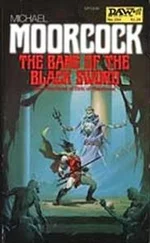Burt Standish - Dick Merriwell Abroad - or, The Ban of the Terrible Ten
Здесь есть возможность читать онлайн «Burt Standish - Dick Merriwell Abroad - or, The Ban of the Terrible Ten» — ознакомительный отрывок электронной книги совершенно бесплатно, а после прочтения отрывка купить полную версию. В некоторых случаях можно слушать аудио, скачать через торрент в формате fb2 и присутствует краткое содержание. Жанр: Прочие приключения, foreign_prose, на английском языке. Описание произведения, (предисловие) а так же отзывы посетителей доступны на портале библиотеки ЛибКат.
- Название:Dick Merriwell Abroad: or, The Ban of the Terrible Ten
- Автор:
- Жанр:
- Год:неизвестен
- ISBN:нет данных
- Рейтинг книги:5 / 5. Голосов: 1
-
Избранное:Добавить в избранное
- Отзывы:
-
Ваша оценка:
- 100
- 1
- 2
- 3
- 4
- 5
Dick Merriwell Abroad: or, The Ban of the Terrible Ten: краткое содержание, описание и аннотация
Предлагаем к чтению аннотацию, описание, краткое содержание или предисловие (зависит от того, что написал сам автор книги «Dick Merriwell Abroad: or, The Ban of the Terrible Ten»). Если вы не нашли необходимую информацию о книге — напишите в комментариях, мы постараемся отыскать её.
Dick Merriwell Abroad: or, The Ban of the Terrible Ten — читать онлайн ознакомительный отрывок
Ниже представлен текст книги, разбитый по страницам. Система сохранения места последней прочитанной страницы, позволяет с удобством читать онлайн бесплатно книгу «Dick Merriwell Abroad: or, The Ban of the Terrible Ten», без необходимости каждый раз заново искать на чём Вы остановились. Поставьте закладку, и сможете в любой момент перейти на страницу, на которой закончили чтение.
Интервал:
Закладка:
The stranger smiled a little, and there seemed something a trifle sinister about his face in that moment.
“It is a man poor in command of himself that cannot drink when he likes and leave it alone when he chooses,” he declared.
“Many a guide man canna do it.”
“Well, I don’t understand them. What is the name of this unfortunate man, if you don’t mind telling?”
“It is Budthorne.”
“Rather odd name.”
“But I ha’ na asked your name, sir. You are na English yoursel’?”
“No.”
“Nor still American. I think you must be – ”
“French? Well, you are right, madam. I am Henri Clairvaux, of Paris. Think not I am curious or prying. These questions I have asked merely the time to pass. I am walking through Scotland, but the weather is getting too cold, and I soon shall depart for the south. In winter I much prefer Italy to your bleak north country here.”
At this the widow bridled a bit.
“Scotland alwa’ ha’ been guide enow fa me!” she exclaimed. “I ha’ took notice it is alwa’ th’ weak that prefer the warm countries i’ th’ winter. I ha’ been thinkin’ ma’hap it wud be well fa th’ young man upstair to go south fa th’ winter time.”
Outside the door there was rustling. The door was opened and a musical, feminine voice called to the widow.
The man in the cloak had his back toward the door, and he did not move.
Excusing herself, the landlady hurried from the room. The moment she was gone the stranger picked up his hat and gloves and hastily rose.
“It is well enough that she should not see me now,” he muttered. “I must get out at once.”
He clapped his hat on his head and pulled it hard down, taking pains to make the limber brim lap over his face. Then he swiftly crossed the room to the door, buttoning his cloak over his breast.
Pausing at the door, he listened.
“The coast is clear,” he whispered; after which he stepped briskly out to the front door.
Just as he was passing through that door the girl came from another room and saw his vanishing back. She clutched at the widow, who had followed her.
“That man?” she cried, in a trembling, frightened voice. “Who is he?”
“He ga’ his name as Henri Clairvaux, o’ Paris,” answered the Widow Myles.
“And lied!” panted the girl. After which she fled up the stairs to the room of her brother, her face ashen pale.
CHAPTER IV. – BUDTHORNE’S STRUGGLE
The working of alcohol on some constitutions is remarkable. It is a singular thing that some men seem to keep themselves steeped in the poison for years without breaking down, while others rapidly go to pieces and become physical wrecks before its vitality-destroying influence. The latter class is by far the larger.
Occasionally a man whose nerves are deep set, whose constitution is ironlike and whose coarser nature predominates, persists in drinking regularly and heavily for years and seems to remain in good health. To those who know him well, and meet him day after day, he presents no abnormal aspect; but almost certain it is that drink has taken such a hold on him that he cannot appear to be in his natural condition unless he constantly keeps in his stomach enough of the stuff to intoxicate an occasional drinker to the point of reeling. Take it away from him and he collapses like a pricked bladder.
Dunbar Budthorne was a man without the stamina to withstand the blighting effect of constant drinking. The rapidity with which the stuff fastened its clutch upon him was appalling. His relapse when, at the entreaty of his loving and faithful sister, he stopped drinking and let it wholly alone, was pitiful.
Ever since arriving at the Ben Cleuch, Budthorne had been in a state of mental distress and physical collapse. The desire for drink was with him constantly, and in his soul a fierce battle raged unceasingly. In the night he rose and paced the floor of his room, his hands clinched, his nerves taut, mumbling, mumbling, mumbling. Every night, at his request, Nadia locked him in that room, keeping the key with her.
“You must master the desire, Dunbar, my brother,” she said. “You can do it.”
“Yes, by Heaven!” he cried, setting his teeth. “For you, Nadia, I will do it!”
“Not for me alone, Dunbar; for yourself, as well. You can see what you have come to in less than a year. A year ago you were not the slave of drink.”
“I should say not! And had any one told me I’d get this way in twelve months I should have thought him a fool. I don’t understand it now. Nadia, why can other men drink when they choose, and let it alone when they choose?”
“Not all of them can, Dunbar, I am sure. I believe there are thousands just like you.”
“Perhaps you’re right; they keep it hidden from others, or they do not realize it themselves.”
“That’s the way it is.”
“What a wise little chicken you are, sister! What a brave little girl! And what a worthless brother you have!”
Then she would caress him and pat him on the cheek, and tell him he was “all right.”
“All wrong, you mean. Sis, I’m going to make my share of the fortune left us over to you. I’ll do it at the first opportunity. I’ve made a hole in it already. Were I to keep hitting the booze, I’d go through the whole of it in another year.”
“But you have stopped, and you’ll never touch it again. You have escaped from those evil friends whose influence was ruining you. Their hold on you is broken.”
She did not chide him with his folly and weakness in ever becoming friendly with such unworthy companions. She did not remind him that Luke Durbin was a barroom acquaintance, a race-track gambler, and a creature he had been forced to introduce to her with a flush of shame on his cheeks. She knew he had thought of this with regret and remorse.
But it was not Durbin she most feared; it was the Spaniard, Bunol, who had been forced upon them by Durbin. She believed Bunol possessed some evil power of unknown force which he had exercised upon Budthorne, and the spell of which he had tried to cast upon her. Durbin knew about this mysterious power, and he had brought Bunol forward that the fellow might exercise it to accomplish the downfall of Budthorne and the snaring of his sister.
“Yes, their hold is broken,” he agreed. “We have our chance acquaintances which we met on London Bridge to thank for that. It was your scheme – ”
“Not mine; Dick Merriwell did it. It was he who formed the plan to disguise himself as Mr. Allsquint and get into your room in London that night of the card party, where he exposed the cheating of Bunol, who was robbing you at cards.”
“A wonderful chap that boy is! I like him, Nadia, and I like his chum, the fellow from Texas. Don’t you?”
“I do, indeed. Brad Buckhart is splendid, and the old professor is a genial soul. I am sorry we were unable to remain in Edinburgh until they came; but Bunol was there, and I knew we might encounter him any time. I thought it best to come here, but I have written our friends, making an explanation, and I hope they will take the trouble to hunt us up.”
“If they do, it will be on your account, sis. Oh, yes it will! Look out for Buckhart, Nadia! The fellow is smitten.”
“Nonsense, Dunbar!”
“He is. I noticed how he held your hand as they were seeing us off at the station in London. His eyes followed you all the time. You’ll have a wild and woolly Texan on your staff if you’re not careful.”
“I don’t see that there is anything so very wild and woolly about him.”
“Ha! ha! You resent that, eh? It looks suspicious, girl – very suspicious. Better be careful.”
“Stop your teasing, Dunbar! I’m sure I don’t care a snap about him, and I don’t believe he cares anything about me. Why should he? We barely know each other; we may never meet again. He is only a boy – ”
Читать дальшеИнтервал:
Закладка:
Похожие книги на «Dick Merriwell Abroad: or, The Ban of the Terrible Ten»
Представляем Вашему вниманию похожие книги на «Dick Merriwell Abroad: or, The Ban of the Terrible Ten» списком для выбора. Мы отобрали схожую по названию и смыслу литературу в надежде предоставить читателям больше вариантов отыскать новые, интересные, ещё непрочитанные произведения.
Обсуждение, отзывы о книге «Dick Merriwell Abroad: or, The Ban of the Terrible Ten» и просто собственные мнения читателей. Оставьте ваши комментарии, напишите, что Вы думаете о произведении, его смысле или главных героях. Укажите что конкретно понравилось, а что нет, и почему Вы так считаете.












